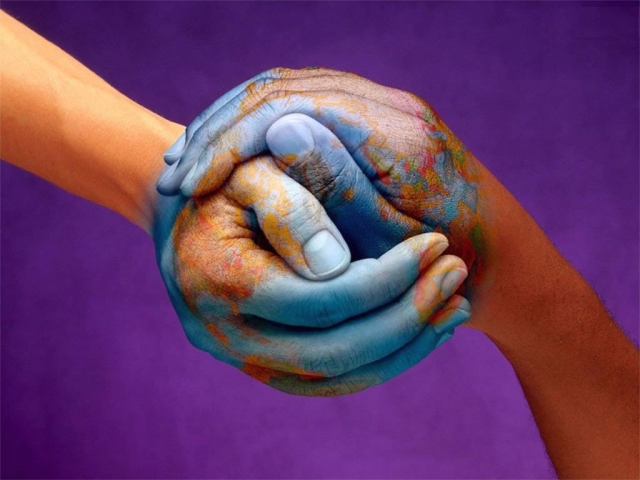PEOPLE MAKE THE WORLD GO ROUND: Celebrating those who give
We are often told that money makes the world go around. Money is important, but many critical elements of our communities operate without any monetary exchange.
Think about all of the people in our community who do things, lots of things, for free. You are probably one of them. According to the 2010 State of Rossland Survey, 84% of Rosslanders participate in at least one volunteer organization. Community events such as Golden City Days and the Winter Carnival would not happen without a slew of volunteers. Sports teams, youth organizations, community boards, service organizations, the community garden, local festivals and performances, pet rescue organizations and the famous Rossland Thrift Store all rely on people working for free. And that is just what we view as traditional volunteering. Even our local politicians, although they receive some compensation, likely put in many unpaid hours. And don’t forget about all the people who engage in childcare, household labour, and eldercare every day.
I have at various times in my life been a coach, cub scout leader, Parent Advisory Committee secretary, mother, wife, student organization president, conference organizer and playground installer. Heck, a lot of the time, I even write for free. And I am only a sporadic volunteer. There are many people in Rossland who have dedicated their lives, or a very significant portion of their lives, to helping others and contributing to the overall well-being of our community for absolutely no financial remuneration.
Our community, and most communities, would fall apart without all of the people all around us putting in time and energy to make things happen for nothing more than a smile, and a thank you and the satisfaction of knowing they contributed.
Free labour isn’t the only part of the non-money economy. In some communities, and probably ours, people barter and trade services and goods, participate in formal and informal co-ops and set up alternative currencies.
It is estimated that at least 40% of the productive work in most countries occurs outside the market economy. In other words, is it is unpaid, or paid through exchange or bartering in some form. Yet the pervasive worldview is that only paid work is “real work” and that those who do not have it are “unemployed.”
But without the connective glue provided by the non-money economy, many of our communities would be less vibrant, less caring places to live with fewer opportunities for everyone, and paying people to do the work currently undertaken by volunteers would be cost-prohibitive. Social capital and collective efficacy are critical components of our communities and contribute to reduced crime, lower healthcare costs and better prepared future generations. The non-money economy is truly a central part of the economy – here and everywhere in the world. Some people take it a step further and argue that the future of our society lies in making the non-money economy dominant, and subverting the money economy to the greater good of everyone. How this would actually look in practice is still the subject of great debate and there are no clear answers.
While a true non-money economy may be well in the future, it’s time to start learning more about, and celebrating the contributions of, the volunteers and other elements of the non-money economy in Rossland and the surrounding area. The Rossland Telegraph wants to start profiling volunteers, volunteer organizations and other unique non-money systems that contribute to the fabric of our community.
If you know someone or something that you think deserves to be profiled, send us their name and we’ll follow up – you can even submit your own name. These will be fun interviews intended to highlight benefits, costs, challenges and absurd moments associated with working for free. Interspersed with these profiles will be articles on different aspects of the non-money economy, such as volunteer burnout, the anatomy of a volunteer organization and succession planning.
We look forward to hearing from you.
Please direct any suggestions for future columns here.
Jennifer Ellis is a local writer and consultant. Her first novel, a middle-grade fantasy for adults and children on time travel, physics and witchcraft, entitled A Pair of Docks, is available on Amazon and at Café Books West. Her second novel, due out in April, explores the issues of a non-money economy in a post-apocalyptic future.
























